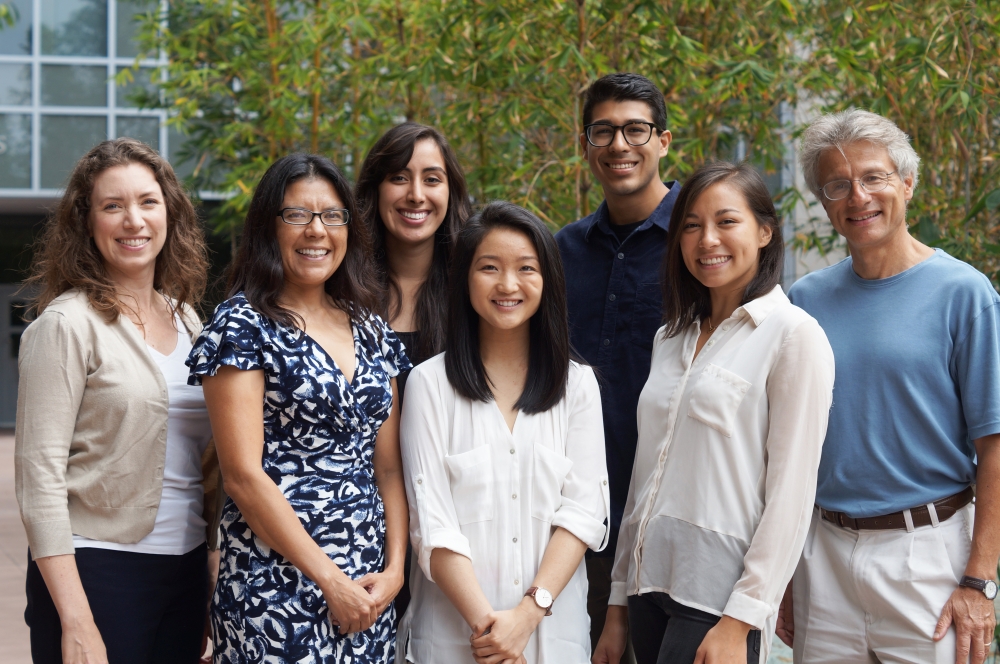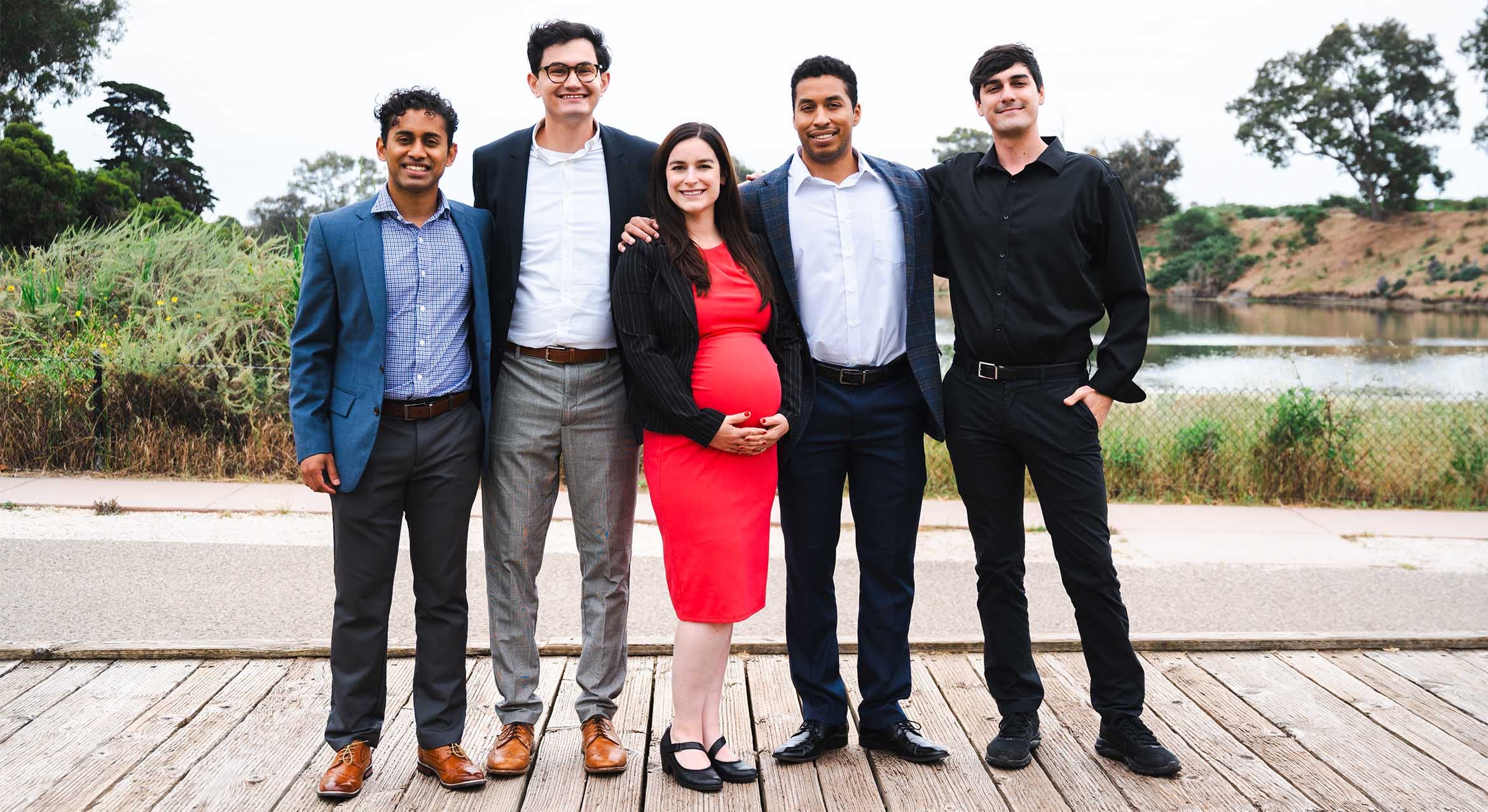
On Your MARC
Four UC Santa Barbara students have been selected as the inaugural participants in a new initiative designed to enhance the way UC Santa Barbara prepares its undergraduates for competitive graduate programs in biomedical research.
The program, Maximizing Access to Research Careers (MARC) Undergraduate Student Training in Academic Research (U-STAR), is led by Craig Montell, Duggan Professor of Neuroscience in the Department of Molecular, Cellular, and Developmental Biology, and Arica Lubin, professional development programs manager at the Center for Science and Engineering Partnerships (CSEP). The MARC scholars for 2015 are Alexandra Barajas (Chemistry ’17); Bianca Dunn (Microbiology ’17); Joseph Sanz (Chemistry ’17); and Jessica Wong (Chemical Engineering ’17).
“I am thrilled that UCSB now has the resources to help foster the biomedical careers of outstanding undergraduates representing the diversity of our campus,” said Montell, the director of the MARC U-STAR program.
Funded by a $1.2 million grant from the National Institutes of Health (NIH), the program promotes the increase of talented biomedical and behavioral scientists from disadvantaged or underrepresented backgrounds into leadership positions as a means of promoting our nation’s health-related research needs. “As a newly designated Hispanic-Serving Institution, UCSB is committed to expanding research training and academic preparation to better serve the growing demographics of our student body,” said Lubin.
Through this five-year award, the MARC program will offer robust funding to 16 undergraduate students who will participate in two years of scientific research, leadership development and graduate school preparation. Students will be mentored individually by biomedical faculty researchers and CSEP staff members. The program will offer students a unique opportunity to become immersed in the scientific community and develop as future leaders in the biomedical and behavioral sciences.
Barajas is working with postdoctoral fellow Artur Mailyan in Armen Zakarian’s lab in the Department of Chemistry and Biochemistry. Her research is focused on methodology to improve the syntheses of numerous natural products that will dramatically improve existing methods to determine fresh water purity.
Dunn is exploring bio-inspired approaches to help overcome antibiotic resistance under the supervision of postdoctoral fellow Zachary Ruhe in David Low’s lab in the Department of Molecular, Cellular, and Developmental Biology.
Sanz is conducting research with graduate student James Hemmer in the Department of Chemistry and Biochemistry’s Javier Read de Alaniz’s research group. His project is synthesizing donor acceptor Stenhouse adducts compounds and studying their use as sensors for polymeric material subjected to high strain rates.
Wong is developing oral delivery alternatives for conventional injectable formulations using mucoadhesive patches for delivery of proteins and peptides in the gastrointestinal tract. She is working in Samir Mitragotri’s lab in the Department of Chemical Engineering under the supervision of postdoctoral fellow Amrita Banerjee.
In addition, the MARC program will organize campuswide activities open to all undergraduates interested in biomedical careers, including early research engagement, academic preparation and career awareness led by CSEP Director Ofelia Aguirre. “We are excited for this opportunity to expand and improve campuswide preparation of UCSB students for biomedical research careers,” she said. “Overall, the MARC program will engage more than 240 undergraduates during the five years of this award.”
The NIH grant will foster new collaborations as more than 40 UCSB faculty members conducting biomedical and behavioral research from across all science and engineering departments will serve as potential research mentors. MARC includes partnerships with institutions nationwide, including six other UC campuses, the University of Washington and Johns Hopkins University School of Medicine.
The four MARC Scholars will present their research projects along with more than 100 summer interns at the Summer Undergraduate Research Colloquium at 9 a.m. on Aug. 14 in the Corwin Pavilion.



